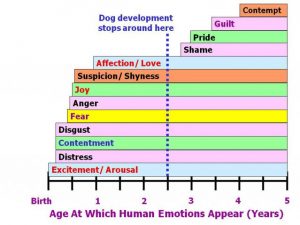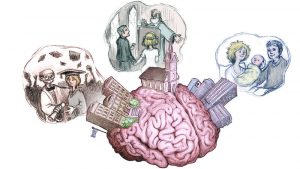If you have ever googled the word “dog,” you would know that more than 1.5 billion search results come up. Dogs running, dogs playing, dogs eating, dogs sitting down, dogs listening to music, pensive dogs, sad dogs, side-eye dogs, “doge” dogs…you get the idea. For some strange reason, this species of canine is deeply ingrained into the everyday lives of mankind. Just take a look outside, and you will find that it’s true. As of 2012, an estimated 525 million dogs populate the earth. A recent finding has even gone as far as tracing man’s history with the four-legged companion, concluding that we have had an enduring relationship of over 33,000 years.
What exactly is the appeal? I admit, I used to be unapologetically indifferent towards dogs until my family finally adopted one of our own–or more accurately, she adopted us. I don’t exactly know what change occurred or when; only that I found myself with an inexplicable inability to resist her, or any other dog–for that matter. During breaks from school, I bring Zozo to dog parks or buy her new toys and make sure she gets her daily walks in.

During school, my YouTube tab is perpetually open to some random video of a dog freaking out over a new toy or of a corgi puppy struggling to go down stairs. Strange, right? This odd fixation extends into the real world too; I will more than likely embarrass my friends by obsessing over every single dog that passes by. How can I not though, when my insatiable love for dogs is validated, time and time again? Like when the news reported about a dog who protected his family from a house fire. Or the time when a dog in Swansea, Wales rescued 27 people from drowning. Or that other time when a dog refused to give up waiting for his owner, even when the owner never showed up.
There seems to be something in dogs, a kind of innate cognition, if you will, that is translated by means of action. As made evident throughout history, they are incredibly dependable and surprisingly empathetic.
Are You Smarter Than a Canine?
When a dog wags its tail, it is generally understood as being happy and excited; but how much more do we know about the emotional capacity of dogs? Turns out, quite a bit. In recent years, canine cognition has become a popular topic among researchers. Through fMRI studies of canine brain activity, it has been revealed that dogs share the same brain structures and some of the same hormones that humans use to produce the full range of their emotional spectrum.
Similar to humans, dogs also experience increasingly complex emotions as they grow. Yet, while it takes a human child nine to ten months before he or she can understand love, dogs develop their emotions must faster and reach their full range of complexity at four to six months. After ten months, humans will continue to develop more complex emotions that can be a product of inter-species interaction, such as shame, but dogs will never go beyond their six-month emotional learning period. So I suppose you could say that mature dogs have the emotional capacity of a two-and-a-half year old human child–not old enough to experience feelings of guilt or pride, but able to understand basic emotions like joy, fear, excitement, and love.

So, yes, a dog’s understanding of the world may be rather simplistic in comparison to mine or yours, but in some aspects, they prove to be more aware of emotional states than we give them credit for. At the Central European University in Hungary, researchers found that dogs are quite aware of the “intentional dimension” of language. In essence, dogs will make an effort to keep eye contact and will analyze our gestures for a cue, or signal, pertaining to them. This level of attentiveness to human behavior is unique to dogs and is not as strongly present in primates, who are widely considered to be man’s closest living relative. This is perhaps why dogs have been companions to mankind for so long.
Do Dogs Remember?
Today, dog cognition has made headlines with research pertaining to their memory. Dog owners already know this to be true–every dog is individually unique with a personality shared with no other canine. Yet no research has been able to back this sentiment up. Until now.
For this explanation, we must make a trip to Budapest, Hungary. There, researchers enlisted the help of 17 dogs and tested their capability to form “episodic” memories. What are those? Think about what you did this morning, starting from getting out of bed. The sequential stream of images flashing through your mind are like episodes, right? More importantly, these episodic memories prove our own capability to have a personal narrative of our lives and essentially provide evidence of individuality. Through the experiences that we have, we are made distinct from others. And now, we know this also applies to dogs.

In the Budapest study, the dogs were trained to imitate a simple action, such as looking into a bucket or touching an umbrella, and then were given the command to “do it.” While simply following a command does not quite translate into recalling a memory, the command to imitate had to be unexpected. To do this, the dogs were trained to expect an alternate command to “lie down”, which they would receive after watching their owners perform the action. After this was successfully learned, it was time for the test. Rather than receive the usual “lie down” command after a minute to an hour of rest, the dogs were told to imitate with “do it.”
At first, the dogs were evidently surprised. Some continued to look at their owners for long periods, as if still waiting for the “lie down”. Then, stretching out a single paw, the dog touched the umbrella, replicating the owner’s previous movements. While less dogs were able to remember the movement to imitate after an hour, it supports the fading nature that is characteristic of episodic memories. Need proof? I don’t blame you. Here is a video of the test in action.

So it is confirmed. Dogs do indeed remember what we do and when we do it. What’s more is that other studies have indicated that dogs may even understand some spoken words, even if they are spoken in monotone. So dog lovers, feel free to rejoice. Not only do you share your time, energy, and love with your best friend, you also share your memories.
[hr gap=””]
References
1. https://www.psychologytoday.com/blog/canine-corner/201209/how-many-dogs-are-there-in-the-world
3. https://www.psychologytoday.com/blog/canine-corner/201303/which-emotions-do-dogs-actually-experience
4. http://www.livescience.com/17763-dogs-communication-intent.html

